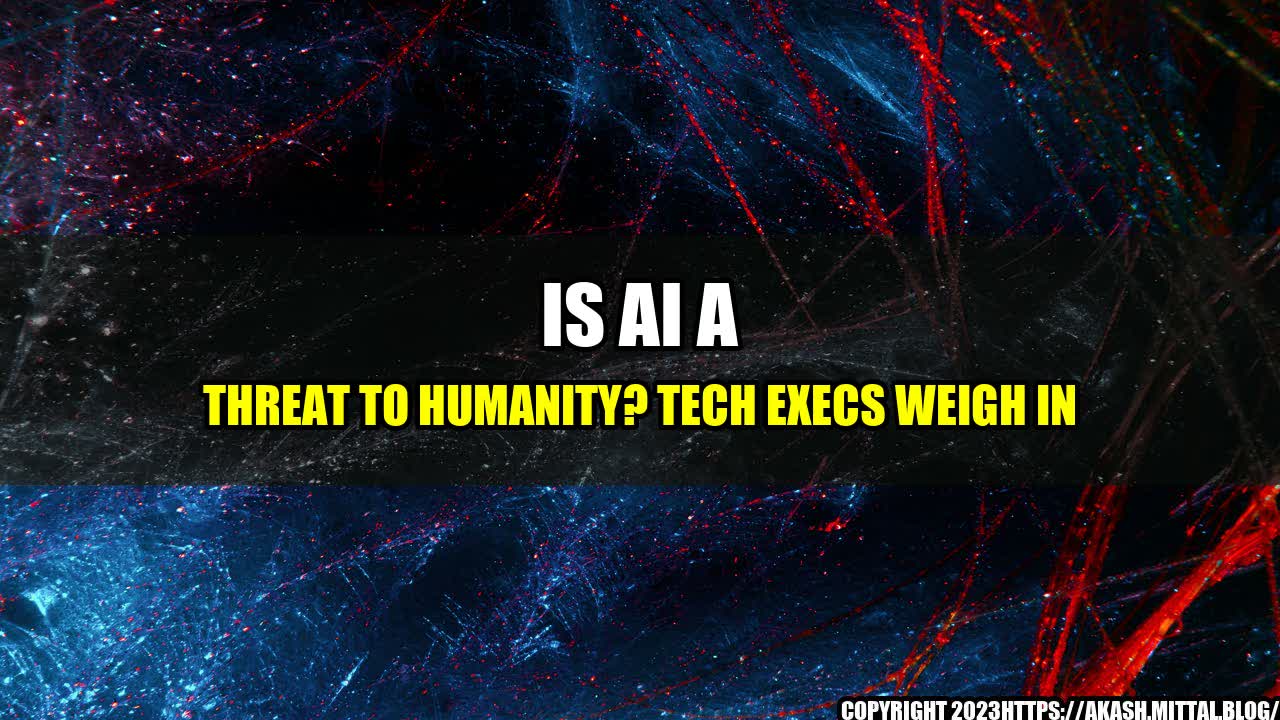The Rise of AI
It's hard to imagine life without AI these days. From virtual assistants like Siri and Alexa to self-driving cars, AI is becoming more and more ubiquitous. But along with its benefits, AI also poses risks. Some experts worry that AI could become so powerful that it might pose an existential threat to humanity.
According to some tech executives, there are several reasons to be concerned about the rise of AI. For one, AI could become so intelligent that it surpasses human intelligence and becomes uncontrollable. It could also become malicious and turn against its creators, as depicted in popular culture such as The Terminator, The Matrix, and Ex Machina.
Given these risks, some tech executives are calling for greater caution and regulation when it comes to AI development. Elon Musk, for example, has warned that AI is "more dangerous than nukes." Bill Gates has said that he is "in the camp that is concerned about super intelligence" and that "AI is something that needs to be approached with caution."
The Benefits of AI
Despite the concerns, AI also has the potential to revolutionize many aspects of our lives. For example, AI can greatly improve healthcare by helping doctors diagnose and treat diseases more accurately and quickly. It can also help us tackle pressing societal challenges such as climate change and poverty.
In the business world, AI has already proven to be a game changer. Companies are using AI to automate tasks, improve customer experiences, and gain insights from big data. In the future, AI could help us create more efficient and sustainable economies, and even help us colonize other planets.
The Bottom Line
So, does AI pose an existential threat to humanity? The answer is, it's complicated. While AI does have the potential to become dangerous, it also has enormous potential for good. As with any technology, it's all about how we use it.
Here are three takeaways:
- We need to take the risks of AI seriously and be proactive in addressing them by investing in safety research and regulation.
- We need to ensure that the benefits of AI are shared equitably among people and nations, so that AI doesn't exacerbate existing inequalities.
- We need to educate ourselves and be aware of the potential risks and benefits of AI, so that we can make informed decisions about how we use and regulate it.
In conclusion, AI is a powerful tool that could greatly improve our lives, but we need to approach it with caution and responsibility. By doing so, we can help ensure that AI benefits humanity rather than posing a threat to it.

Curated by Team Akash.Mittal.Blog
Share on Twitter Share on LinkedIn